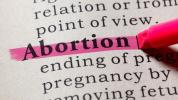The Surprising Ethics of Climate Change
These days it seems like everyone knows that we should do something about climate change, but there also seems to be a lot of inertia to take action.
Until relatively recently, a common view was that governments would provide the solutions. The Intergovernmental Panel on Climate Change’s (IPCC) special report “SR15”, released in 2018, established that individuals should also contribute to reducing greenhouse gas emissions in order to meet the mitigation requirements to limit warming to 1.5 C. Publicly, there are plenty of good intentions from both individuals and governments, but there’s not a lot of action on either side. So, what’s going on?

Given that climate change is, quite literally, an existential problem, it’s strange that we’re not all rushing to solve it. After all, what is more morally good than saving humanity from impending destruction? Upon inquiry, it turns out that there are many barriers to action, with perhaps the most surprising one being the philosophical foundation: the ethics of why and how we should act to address climate change. The arguments for action are riddled with challenges. Tim Hayward’s review article, “Climate change and ethics”1, discusses the dilemmas. I have drawn out, below, some of the most important points from that article, along with some more recently published findings, in order to explore the inertia around action on climate change. On review of these arguments, and in light of the many barriers to action, it appears that the persuasiveness of moral reasoning in this respect is weak, because, I will argue, multi-generational future-impact challenges (such as climate change) don’t play well on a normative basis.
Barriers to action
It has been found that most people in developed countries are aware of climate change and the need to take action to avert the associated risks2. The hesitancies to doing so are varied and many3, and collectively could be described as an intention-action gap. A common, lamentable, issue is being stuck in a comfortable first-world lifestyle. Our dependence on emissions-producing activities is high, but not un-substitutable. Changing habits requires willpower, which can be difficult to find when we observe (or even just believe) that other people around us aren’t changing theirs. More concerning is that most people in the developed world are embedded in systems that aren’t designed to enable low-carbon lifestyles.
When people do take climate-change-mitigation action, there is often a misunderstanding of what are the most effective actions to take. Studies from 20084 and 20225 demonstrate that this trend is persistent, and hence an absence of (or ineffective) public education on climate change action is a problem.
Unfortunately, it also seems that the power of being correctly informed can only go so far: a large scale, international study6 found that an individual’s self-belief that they will take mitigation action was a worse predictor of actually taking action than was having personal experience of the effects of climate change. The influencing power of direct experience of climate change is absent for many people in developed, northern-hemisphere countries, as the negative effects are only just starting to occur there. This leaves people in those regions dependent mostly on information and imagination. It’s interesting to note that fictional stories featuring authentic pro-environmental behaviours have been found to influence British adults' support for climate mitigation policies as well as influencing intention to take action7.

How far does our responsibility extend? What can we rightly be regarded as responsible for?
Collective responsibilities
These barriers-to-action apply primarily to individuals. Looking from a more collective perspective, the challenges facing nation states are no less apparent.
With the power to enact change at scale, governments are considered the main drivers of mitigation action, through energy generation, infrastructure, law and policy, and behavioural nudges. Questions quickly arise, though, about which countries should bear the responsibility and associated costs of mitigation action.
An obvious starting point is, those who cause a problem should fix it. Posing that more formally: should moral responsibility track causal responsibility? If yes, then should countries take proportionate responsibility for their current emissions, in anticipation of the negative impacts in the future? That is, should the largest polluters today contribute the largest shares to mitigation efforts? This seems like a rational starting proposition, but objections can be made that it doesn’t reflect that, historically, some countries polluted much more than others, and by so doing they represent a large part of the reason the world is warming at its present rate. For instance, the United Kingdom and Vietnam both had similar total carbon dioxide emissions in 20218; however, the Industrial Revolution and its unbridled pollution started in Great Britain. Is it fair for Vietnam to make the same contributions as the UK, based on current emission rates?
Here, we enter a thorny area. Historical polluters did not necessarily realise the climate-impacting consequences of their polluting actions at the time. Can a lack of awareness, in this context, imply guilt? Would responsibility then fall on their descendants? One approach is to associate responsibility with benefit from emissions-related activities: the countries that historically polluted a lot benefitted greatly from their endeavours. This potentially allows historical responsibilities to be passed on to the descendants of historically significant polluters.
This solution, unfortunately, has its problems. Firstly, it’s questionable if those of us alive now owe any debt to our ancestors, a point raised implicitly by Derek Parfit’s non-identity problem, to which I will return later. That possibility weakens the original argument for causal responsibility. Secondly, all nations have benefitted from industrialisation, through technological and, in particular, medicinal developments. Although that complicates things, a counterpoint is that many of the benefits distributed to developing nations have resulted in large debts placed on them, so it has not been a fair game.
Causality-agnostic responsibility
Perhaps a way out of this quagmire is to look at causality-agnostic responsibility. This involves looking not at the specific causes of the current situation, but instead at the outcomes of the activities which led to the current situation. In particular, the financial outcomes.
As the leading countries of industrialisation and fossil fuel exploitation have generally made large economic gains, they are in a better position to contribute to mitigation costs than other countries. The proposal reduces to: those with the ability to pay, should pay. This avoids considerations of causal complexities, and implicitly encapsulates the historical benefits and associated exploitation that has occurred. It helps to restore some justice for the inequalities incurred around the world. There is, however, an obstacle to overcome with this approach. Wealthy countries that have already worked to reduce their emissions would effectively be subsidising the costs of wealthy-but-heavily-polluting countries. Is that fair?
It’s also worth noting that transnational systems exist that are potential candidates for responsibility attribution. This includes multinational businesses and global financial systems. There are, however, difficulties to overcome as these systems possess aspects that lie beyond the control of states and beyond the reach of nationally-bounded legal systems.
Rights and justice
Overall, the debates around responsibilities towards climate change mitigation must wade through a complex of competing self-interests and unsettled moral justice arguments. Appealing paths emerge, but there seem to be no straightforward solutions. Accordingly, we might turn our attention to a related perspective, that of rights.
It has been proposed that climate change will impair various fundamental human rights; if it can be demonstrated that a right has been violated, then there is a clearer pathway to assigning responsibility and hence to justice. However, there’s little agreement on which rights would be impaired, and many of the suggested rights can actually be seen as interests. Compounding this, philosophical debate is ongoing as to whether the protection of interests comes about from the protection of rights, or indeed whether an interest can even demand a right.
All this uncertainty only worsens when we factor in time. More than just rights being impaired as climate change progresses, it has been argued that climate change reduces the possibility of justice itself. Catriona McKinnon9 frames the argument with the possibility that the Earth’s climate will change by passing through several significant tipping points, rather than progressing gradually, as is often assumed (including in scenarios used in IPCC reports). The tipping points are not hypothetical – they have occurred in the past: they result in self-reinforcing changes with extremely negative impacts for life. Under these conditions it is expected that severe drought and desertification will occur in crop-growing regions, along with more frequent storms and flooding elsewhere. The outcome would be famine, territorial insecurity and conflict over limited resources. McKinnon argues that in these situations, self-preservation trumps social justice. I would add that, even if the gradual change model is the more likely scenario, similar outcomes are still possible. Hayward notes that the pursuit of justice is already being undermined for the ecologically marginalised and is likely to only get worse, as “the insecurities that already afflict people today are amplified by environmental changes”.

Luke Roelofs: When Does a Fetus Have Rights?
What sort of rights should a fetus or embryo have? A clear, comprehensive review of the arguments.
Future generations
Underlying many of these ideas is a philosophical uncertainty about future generations of people, which adds another layer of difficulty to the decision-making already discussed. It comes from Derek Parfit’s non-identity problem (NIP)10, which states that individuals born in a given future, relative to an arbitrary now, cannot complain about their existence in that time because they couldn’t exist in any alternative future in the manner in which they exist currently. Their being is only ever in their present state.
In applying this to considerations of climate change, it cannot be said that our descendants will be any better off or worse off from our choices of action now: they will simply be the outcome of our choices and thus their existence cannot be evaluated as better or worse. This is concerning, because it opens the door to not making beneficial choices for our descendants – at the very least, how can we determine rights for beings who don’t yet exist? This appears to be an escape clause for those who don’t wish to contribute to climate-change-mitigation efforts, given that the worst of the impacts are predicted to occur several generations from now.
If we allow the NIP to decouple future generations from ourselves, then this allows us to disregard any provision for future generations, and it also decouples us from previous generations. It isolates us, morally, from our ancestors and descendants. While we are the outcome of choices made by our ancestors, we owe them no debt. Their choices were arbitrary and hence the outcome world in which we exist is arbitrary.
This is a challenging concept generally, but also specifically for the discussion of historical polluters and whether their descendants should accept responsibility for past actions. Much like Existentialism, the NIP demands that we deeply question our ethical decision making, and serves as an essential principle to keep in mind. In practice, though, we do care for our elders, we do care about our heritage and we do care about our offspring. The NIP certainly doesn’t make considerations of action on climate change any simpler.
Individual contributors
While there is much expectation from the public that governments will provide solutions for climate change, it is observed in Hayward’s paper that nation states are not the primary bearer of ethical responsibility. Indeed, moral duty has traditionally been primarily formulated around agency-rich individuals, which is particularly pertinent considering that emissions are made in response to demand by individuals.
If individuals are to undertake action on climate change, as the IPCC recommends, then there are multiple issues that must be overcome. Issues of will: aspects of the intention-action gap. Issues of reduced agency: being trapped in systems that aren’t designed to support beneficial climate change behaviours, or that actively dissuade or block those behaviours. Issues of being marginalised, economically or developmentally, such that action is not effective or even possible. Issues of personal morality, which are the symbolic crescendo of the raft of challenges surrounding action on climate change. These lead us to question the efficacy of normative ethics in the context of climate change.
Failing norms
Ordinarily, a good moral justification is effective at persuading one to overcome the intention-action gap and to strive to increase one’s agency to enable personal action even in difficult situations. We can look to some of the major ethical systems for help with climate change, yet it seems they also struggle with a problem of this magnitude.
For individual action to be effective, it requires all people to undertake mitigation efforts, and in doing so, we encounter collective action issues. If a Kantian approach is employed for individuals, where one should do what one believes we all ought to do, then there can be a gap where those who don’t participate in mitigation efforts cause others to pick up the slack. In doing so, good agents can actually incentivise others to contribute even less. This also results in those who make up the shortfall having reduced agency, because they are constrained by having to fulfil compensatory activities. We have good reason to assume that there will be non-participants, and so this doesn’t appear to be a particularly appealing moral proposition.

Kant’s ethics is based on the value of one’s motivation and two so-called Categorical Imperatives, or general rules that must apply to every action.
Utilitarianism
How about Utilitarianism? With so many competing interests in the climate change debate, it’s unclear how Utilitarian ethics could apply. Climate change mitigation necessarily means sacrificing ways of life that we currently enjoy. So, what does it really mean when Utilitarianism says that each of us should act to maximise overall utility – broadly construed as happiness – when there are so many differing interests, and so many differing sources of happiness at stake? We each could reduce our emissions to our own self-judged subsistence level, but it can be argued that subjective determination of basic rights (in this case to a minimum level of emissions) on the basis of personal preferences introduces inequalities, and hence undermines the utility maximisation effort.
Additionally, Utilitarianism implicitly demands that we each act to ensure that others are acting to maximise overall utility. Challenging others on whether they’ve reduced their emissions enough hardly seems to be a formula for maximising happiness.
Applying some long-term thinking, it could be argued that humanity will adjust to lower carbon lifestyles, and that if we continue polluting as we do presently, it won’t be possible to enjoy the future in the same way as now. As noted earlier, the largest benefits of mitigation efforts will come in several generations' time, and so it may be difficult for many people to commit to a utility maximisation principle if they don’t experience the gains in their lifetime.
Small contributions
A further challenge to a Utilitarian approach is that many people reject that they are materially contributing to climate change, because their individual emissions are so small compared to national or global outputs.
Indeed, how should we rationalise a problem that is created from a very large number of vanishingly small contributions? The task is undertaken laudably by Cassidy Robertson11, who argues that individual responsibility can, in fact, be derived from collective responsibility for harmful acts committed by the collective.

Source: Canva.com
Individuals acting in this manner comprise a putative group, which is unstructured, uncoordinated and unacknowledged by its members, yet does in fact exist. Although each individual may believe they are acting independently and producing insignificant harms, the group overall is causing larger harm, and thus each member of the group has a derivative moral duty to stop and repair the harm, on account of their implicit membership of the group. This seems to be a compelling argument. It is, however, premised on not quantifying the scale of individual contributions to the overall harm – instead, each member of the group is considered to have an equal duty to repair the harm. This potentially leads back to the debates around division of responsibility and the associated competing interests. Alternatively, perhaps it just means that individuals should do something – or anything – to prevent climate change. But is that enough?
A problematic normativity
It’s beginning to look like climate change ethics are not simplistically normative. The multitude of impacts on, actions required of, and interests of different entities – individual people, countries, organisations, systems – make it difficult to draw a simple rule justifying why and how everyone ought to act for climate change. It may be that different moral arguments need to be applied to different entities and in different situations.
If we want to mitigate climate change, providing a persuasive moral justification appears to be at the heart of the task. Having explored the many barriers to action, and avenues of ethical argument around action on climate change, I’d argue that humans often struggle to adhere to temporally- or spatially-separated ethical obligations. That is, where action needs to be taken now but the consequences don’t materialise until much later, or where action needs to be taken the consequences of which apply to people or environments with which the agent has no direct contact. It’s likely that the reasons are related to psychological distance12. Of course, it is possible for us to transcend those distances, as we often do, but it clearly remains challenging when it comes to addressing ethical problems on the scale of climate change.

Is Abortion Ethical?
Is abortion morally right? We look at the main arguments for and against abortion.
How to proceed
All of these objections should not be seen as an excuse or apology for inaction by governments or individuals. Rather, exploring them reveals the ethical qualms that must be worked through in order to achieve effective and authentic action. Nevertheless, with such weakly persuasive moral justification, how is it possible to support the case for action on climate change?

Examining the intention-action gap identifies a pathway. Should I take action on climate change? There are a lot of arguments that seem to oppose answering “yes”, but the absence of a “yes” doesn’t mean that the conclusion is “no”. We can try a different question: “should I allow harm to come to people and the planet due to climate change?” Posed like this, most people would find it more difficult to answer “yes”, owing to our intuitive sense of avoiding harm. A “no” answer, here, encourages people to consider the logical consequence: what can I do to avoid those harms? I believe the answer lies with that intuition to avoid harm, and leads to some climate change ethics that we can all get behind.
Hayward advocates a form of virtue ethics with a focus on ecological matters. By developing an ethos of “resourceful restraint”, we should find the drive to change our ways of living to support mitigation efforts, and to live a more environmentally-minded life.
Another option, I propose, is an ethics built around empathy. Empathy demands that one understands others' experiences and feelings, and hence their needs. If we can understand how other people will be negatively affected by climate change – not just the practicalities but what that really means for them, their families, their livelihoods, what they value and strive for in life – then we should attain a commitment to action, so that those affected might avoid coming to harm. If empathy can bridge the gap between being informed and actually experiencing, then the study by Broomell et al – where people who have had direct experience of the impacts of climate change are more likely to take mitigation action – gives hope that for those of us who are not directly exposed to such impacts at present, employing some empathy might enable us to contribute to saving the world.
The abundance of issues surrounding the ethics of action on climate change is surprising. Perhaps it is not so surprising then that, when one looks around, it seems as though very little action is being taken. Global progress on the issue has been embarrassingly slow, but there are pockets of positive activity. Considering all of this, I suggest that we shouldn’t avoid action because of the intimidating profusion of barriers, but rather we should take action out of virtue, out of care for the planet, ourselves and our families, and out of empathy for our fellow human beings.
◊ ◊ ◊

David Charles is a philosophy writer and data professional based in the UK. He holds a PhD in Physics. His philosophy writing focusses on ethics and agency, with an empirical basis. His work has been published in Philosophy Now. He also writes public-interest data analysis articles, released via Medium.
ORCID: https://orcid.org/0009-0004-1150-7525
Medium: https://david-charles.medium.com/
Twitter: https://twitter.com/datadaveuk
David Charles on Daily Philosophy:
Cover image by NASA on Unsplash.
-
Nature Climate Change 2, p843, 2012. ↩︎
-
Lee et al, Nature Climate Change 5, p1014, 2015. ↩︎
-
Lorenzoni et al, Global Environmental Change 17, p445, 2007. ↩︎
-
Whitmarsh, Journal of Environmental Psychology 29(1), 13, 2008. ↩︎
-
Royal Meteorological Society, https://www.rmets.org/metmatters/real-impact-climate-actions. ↩︎
-
Broomell et al, Global Environmental Change 32, p67, 2015. ↩︎
-
Sabherwal and Shreedhar, Scientific Reports 12, p1179, 2022. ↩︎
-
Crippa et al, Publications Office of the European Union, EUR 31182 EN, 2022. ↩︎
-
Journal of Social Philosophy 40(2), p187, 2009. ↩︎
-
“Reasons and Persons”, Oxford University Press, 1986. ↩︎
-
Journal of Agriculture and Environmental Ethics 34(14), p1, 2021. ↩︎
-
Liberman and Trope, Science 322(5905), p1201, 2008. ↩︎





